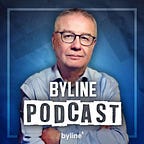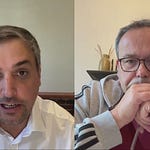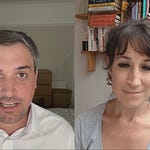Chancellor Rachel Reeves is obsessed with achieving economic ‘growth’, but at what cost to society and the planet? Economist Kate Raworth, author of the bestselling book, Doughnut Economics, has a better idea.
Raworth explains her Doughnut Economics model as starting “with a vision of a thriving, good life, and it looks like a doughnut with a hole in the middle.” Then, she continues, “if you think of humanity using Earth's resources radiating out from the very centre all the way out, basically you want to leave no one in the hole in the middle of the doughnut. That's where people are falling short in the essentials of life—they don't have the food, water, health, education, housing that everyone needs to lead a good life.”
But, Raworth warns, “we can't overshoot the outer crust, because there we put so much pressure on the life support systems of this planet that we will kick our planet out of balance. So leave no one in the hole, don't overshoot Earth's limits. We've got to meet the needs of all people within the means of the living planet.”
The traditional view of economics, the drive to constantly grow GDP, is all wrong, she says: “A lot of GDP is earned at the very cost of social cohesion. It creates inequality, it destabilises the climate, it kills biodiversity. So we need to leave behind outdated metrics and measure life in the metrics that actually matter. Are people thriving? Is the planet thriving?”
Rather than the tempting simplicity of a single number to compare a country’s progress year on year or to compare one country against another, Raworth argues that a “dashboard of metrics” is necessary, measuring things like environmental damage, biodiversity loss, energy transition and the scale of inequality that will provide a richer and more useful picture to work with.
“One of the stats at the heart of this is that in 2022, global finance invested $200 billion in what's called "nature positive" investments. You hear that and think, ‘Wow, $200 billion in sequestering carbon, switching to renewable energy, rewilding, restoring, wow.’”
But, she continues, “then the other half of the story is that at the same time, that same finance has invested $7 trillion in nature-degrading, depleting, destroying activity: fossil fuel exploration, mining, degradation, pollution. So for every $1 that's so-called ‘nature positive’, $35 is undermining nature.”
“We need to end that structural dependence on endless growth. Let me put it this way: we have inherited economies that need to grow, whether or not that makes us thrive. And right now, it's not making us thrive…
“So it's not zero growth, it's not "stop growth"—that would be absurd. It's to make the economy thrive, enable GDP to be able to adapt to bring us back within planetary boundaries and meet the needs of all people. Sometimes it'll go up a bit, sometimes it might oscillate. I think some countries will need to go through a contraction of GDP to come back within planetary boundaries. But it's not a fixation on zero growth. We're prioritising something else.”
You can listen here to more episodes of the Byline Podcast.









